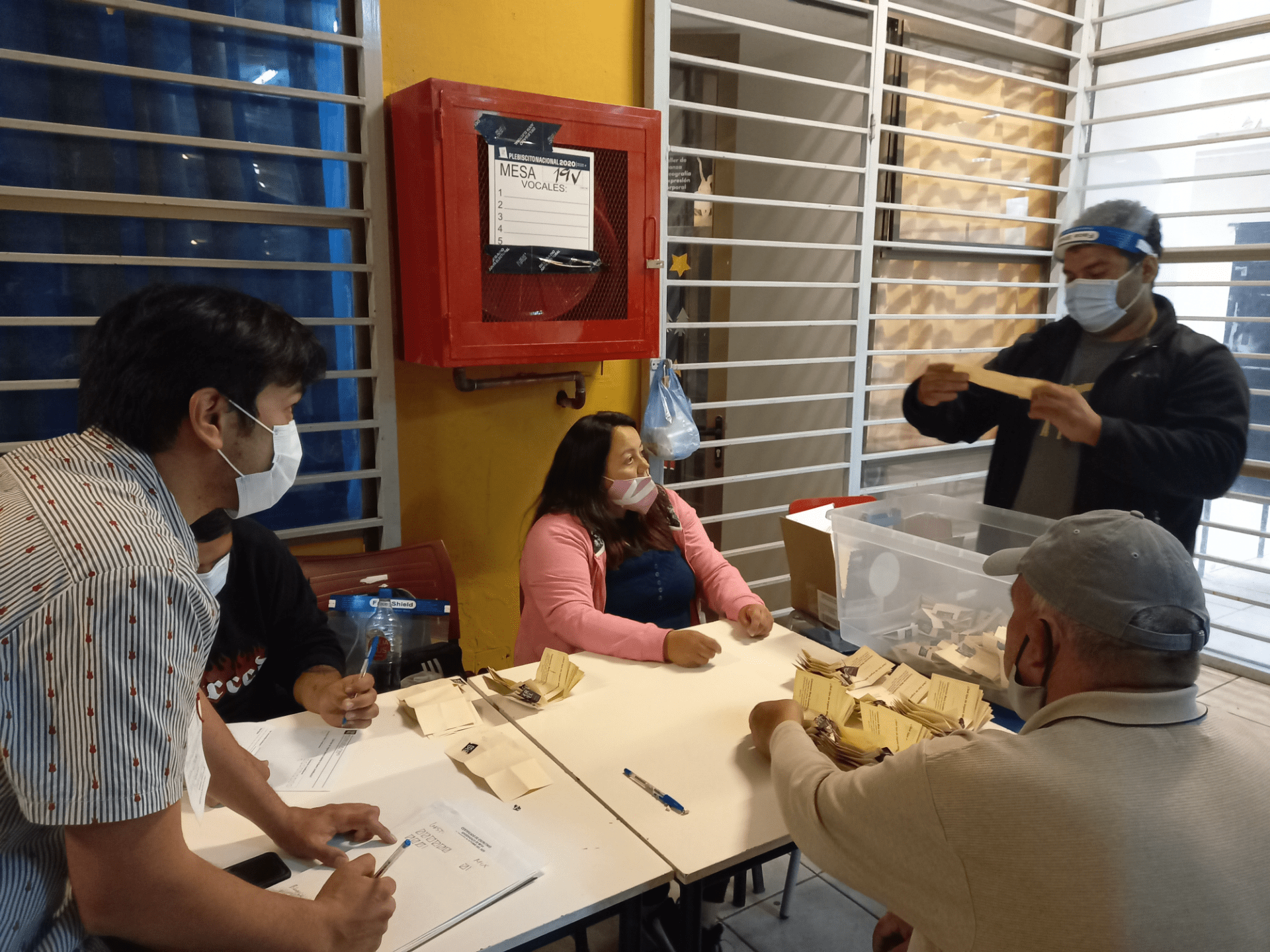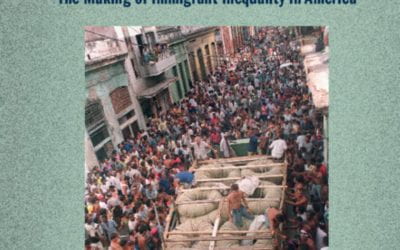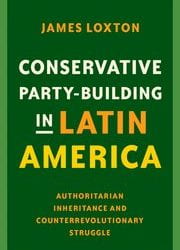A Nation at a Crossroads
Gabriel Boric Unmasks the Diverse Faces of Chile
Winds of change, fueled as much by politics as by the pandemic, framed the rise, campaign and inauguration of Gabriel Boric, 36, who took office March 11 as the youngest president in Chile’s history. It is a decisive year for the country’s future.
Except for the last two months before the run-off election, the presidential campaign was conducted almost entirely on virtual format and social networks, culminating with the highest electoral vote—nearly 56 percent—since the return of democracy 30 years ago, for the former student leader and congressperson. With Boric’s victory, the broad-based progressive Frente Amplio coalition defeated a candidate intent on rolling the country back to the dark ages of dictatorship.
The university student movement whose creative, non-violent protests—dance, umbrellas, zombies, synchronized Michael Jackson-style back steps—captivated Chileans and paralyzed cities during much of 2011 and early 2012, catapulted the political careers of its leaders. A year later, fresh out of college, the former university student federation presidents Gabriel Boric, Giorgio Jackson and Camila Vallejo won congressional seats. A month ago, Boric took oath as president, with Jackson as his chief of staff and Vallejo as press secretary.

Former student leaders Gabriel Boric (right), Giorgio Jackson (left), and Camila Vallejo (center) after inaugurating as the new president, Chief of Staff and Press Secretary, respectively. Credit: El Mostrador
During his second term as congressperson, Boric rose to prominence on November 15, 2019, when he brokered an agreement among all political parties to open the way for a new constitution to replace the current one that dates to 1980 and carries on the dictatorship’s neoliberal government policies. The need to scrap the dictatorship’s constitutional legacy was at the core of the demands of the social movement that, by then, had been rocking the nation almost a month, with thousands on the streets of Santiago, converging near the Baquedano rotunda, rebaptized as Plaza Dignidad. President Sebastian Piñera had declared the country at war against a “powerful internal enemy,” deploying troops for the first time since the Pinochet era and bringing international condemnation for scores of human rights violations.
Boric was branded a traitor by the left for shifting the political fulcrum from the streets to what, at the time, was viewed as an uncertain electoral-based constitutional convention that threatened to dissipate the steam from the estallido social. However, two years later, when he ran for president, his skill as negotiator, capable of bringing together disparate sides, would be remembered and give confidence in his ability to lead the nation.

On his inauguration day, President Gabriel Boric pays his respect to monument to Salvador Allende. Credit: TVN 24horas.

The social movement of October 2019 opened the way for the constitutional process currently underway. Credit: Diario Radio UChile.
A citizen referendum on whether or not to draft a new constitution was set for April 2020, but, unimaginable circumstances brought the demonstrations to a screeching halt and postponed the vote. On March 3, 2020 Chile registered its first confirmed case of coronavirus, a doctor who had returned from an international conference. Neither bullets nor tear gas had halted the social upheaval; it took a previously unknown coronavirus to empty Plaza Dignidad.
Emulating the United States’ approach, the Piñera government initially downplayed the pandemic (the Health Minister remarked that “the virus might mutate to become a good person”) and seemed to improvise daily as the virus quickly spread. But before the end of March, Chile had closed its borders, declared quarantines and decreed state of emergency with strict curfews—authoritarian throwbacks to which it had resorted during the weeks of the social explosion.
Dignified, quality public health had been one of the pressing demands of the social movement. The Covid-19 pandemic brought into sharp focus disparities and weaknesses inherent in Chile’s decentralized, deregulated basic services, including the health care system, starkly confirming the accuracy of the demands unfurled on the streets.
As weeks of shuttered businesses turned into months with no safety net to mitigate loss of income, protests by jobless people, with their requisite masks, prompted the government to begin distributing thousands of packages of basic goods. By then, low-income sectors throughout the country had revived the strategy of ollas comunes, community kitchens that were mainstays during the economic hardship years of dictatorship. The Health Minister’s surprise at overcrowded housing that made social distance impossible was further evidence that officials were out of touch from the majority of Chileans. The discovery that he had manipulated Covid-related death figures became an additional factor that cost him his job, six months into the pandemic.

On October 25, 2020 poll watchers count the votes after the close of the constitutional referendum election. Credit: Carlos Lizama
The gadfly who called out the Health Ministry’s erratic policy was Izkia Siches, head of the Doctors Professional Guild, who, as medical school student president, had marched alongside the other student leaders. Siches became Boric’s presidential campaign manager and today is Interior Minister, the first woman ever appointed to that post (the Interior Minister, who is in charge of public security, becomes acting president in the absence of the president.)
After months of pandemic lockdown, the initial mass outing for many was the October 25, 2020, vote on whether to draft a new constitution. Exactly a year before, more than a million Chileans poured into the streets, instilled with new awareness that unequal conditions in their daily lives stem, in part, from the constitution that perpetuates the dictatorship’s vision of an extreme open market economy.
Standing two feet apart in lines that often snaked a block beyond polling place entrances, 51 percent of the electorate turned out. Nearly 80 percent voted for the “Yes” option and approved an independent constitutional convention as the drafting mechanism. The 20 percent of voters who voted “No” reside in mostly five of the nation’s 346 municipalities, but the bulk of that vote was cast in three neighboring municipalities of northeast Santiago Metropolitan Region (Vitacura, Lo Barnechea, and Las Condes), plus two other very small municipalities. The same three districts, which concentrate a major part of the nation’s economic and political powers, were among the few to vote for Boric’s conservative opponent in the presidential race.

On October 25, 2020, voters wait in line to enter a polling place to vote on the constitutional referendum. Credit: Maxine Lowy
A year and a half later, the Constitutional Convention approaches the end of its mandate, set for July 4. With nearly equal representation between men and women (78 and 77, respectively), as well as among the 17 delegates from original nations, it has practiced a rare horizontal model of pluralistic democracy, even as it tackles the hard question of what sort of nation Chile should be.
In an extraordinary example of direct democratic participation, the articles being debated on the floor- with two-thirds majority vote required for incorporation as an article- originate from initiatives formulated by citizens. Of the 2,496 citizen initiatives published on the Convention online platform, 78 obtained the minimum 15,000 approvals from at least four provinces. A citizen referendum to ratify the new constitution is scheduled for September.
From the first day delegates took their seats, forces resistant to change—both inside and outside the assembly—have aimed to discredit its work. Lacking sufficient votes to overturn measures, the bloc of 37 conservative delegates, many self-proclaimed guardians of the current constitution, has sought to undermine its credibility with frequent doses of fake news, such as the recent rumor that the Convention had voted to eliminate private property. One contentious initiative—not fake news—that proposes to revamp the legislative branch and replace the Senate with a regionalist body has brought the wrath of a group of senators, including some who support the constitutional process.
The seven governments since the initial 1990 transition to democracy had sought to maintain a balance and accommodate to the restraints of the Constitution of 1980. President Boric’s administration may well become the only one to govern under two different systems.
The week Gabriel Boric took office, students had returned to classrooms in person for the first time in two years, thanks to a decline in the pandemic attributed to the previous government’s successful vaccination program, which also left in place mobility pass requirements for traveling and entering many places. Thermometers, alcohol gel dispensers and masks have become ubiquitous fixtures of the urban landscape. The image of the president, who does not wear a tie, and his Cabinet removing their masks (stuffed in pockets or discretely held) for the official photos and then donning them again after the shutter clicked, seems to capture the face(s) of Chile, in all its diversity at this historic juncture.
Indigenous, sexually diverse, single mothers, immigrants, former political prisoners: these faces have always been found in Chile, but, until recently, relegated to the margins of society. And in the last twenty years the immigrant population has soared, with thousands of Peruvians, Haitians, and Venezuelans traversing the continent, their hopes placed on Chile, diversifying its demography. They too comprise the new face of this nation.
Placing his right hand over his heart in a gesture that has endeared himself with many, President Boric often ignores protocol to greet citizens and give many hugs. A retired general was impressed that the new commander-in-chief, at his first military decoration ceremony, looked people straight in the eye and gave firm handshakes.
Born and bred in the southernmost tip of Punta Arenas, where his Croatian great-grandfather settled, Gabriel Boric comes from hardy stock, accustomed to weathering frigid temperatures and gusty winds from the Magellan Straits. The president’s four tattoos that allude to his birthplace are his talismans to keep a steady grip of the helm to steer the ship that is Chile through seas of change, that promise to be at times choppy, at other times calm.

President Gabriel Boric. Credit: Enzo Blondel
Maxine Lowy is a free-lance journalist and translator based in Santiago. Her book Latent Memory: Human Rights and Jewish Identity in Pinochet’s Chile was published in March by University of Wisconsin Press.
Related Articles
A Review of Cuban Privilege: the Making of Immigrant Inequality in America by Susan Eckstein
If anyone had any doubts that Cubans were treated exceptionally well by the United States immigration and welfare authorities, relative to other immigrant groups and even relative to …
A Review of Conservative Party-Building in Latin America: Authoritarian Inheritance and Counterrevolutionary Struggle
James Loxton’s Conservative Party-Building in Latin America: Authoritarian Inheritance and Counterrevolutionary Struggle makes very important, original contributions to the study of…
Endnote – Eyes on COVID-19
Endnote A Continuing SagaIt’s not over yet. Covid (we’ll drop the -19 going forward) is still causing deaths and serious illness in Latin America and the Caribbean, as elsewhere. One out of every four Covid deaths in the world has taken place in Latin America,...



